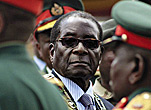New Zimbabwean constitution not a panacea for free and fair polls

A new constitution for Zimbabwe is only one step in a series of fundamental reforms that are needed before Zimbabwe can hold elections.
The high level of attention given to Zimbabwe’s crafting of a new constitution as a key step towards fresh elections necessarily calls for a word of caution about the unjustified great expectations that a new constitution will solve Zimbabwe’s governance and electoral challenges. There is a real danger that president Mugabe and his Zanu PF party may demand elections on the basis of the new constitution but without further critical electoral reforms.
Yes, Zimbabwe needs a new constitution. But to deliver democratic, non-violent, free and fair polls, much more needs to be done. The existing Lancaster-brokered constitution is not, in and of itself, a problem. Disregard for constitutional principles including respect for the rule of law and separation of powers are the major challenges which a new constitution would not necessarily cure. The subversion of state institutions by partisan individuals acting with impunity outside the constitutional framework is a deeper governance crisis that calls, not only for legislative and institutional reforms, but also top-level personnel changes in compromised institutions.
The MDC led by prime minister Morgan Tsvangirai correctly stated, in their ‘Minimum Conditions for Free and Fair Elections’ document, that to deliver credible elections the Zimbabwe Electoral Commission (ZEC) must be staffed by new and civilian employees recruited by the current Commission. Highly partisan employees currently working for ZEC, many of them drawn from the military and state intelligence agents, cannot be expected to run a transparent and impartial electoral process. The MDC must remain resolute and steadfast in their categoric demand that no member of the central intelligence organization (CIO), the police or the army should be involved in the management of any election.
The voters’ roll must be cleaned up to remove ghost voters and ensure greater transparency under the direct and exclusive management of ZEC. To minimize chances of vote-rigging, there is need to address the challenge of extreme voter apathy and encourage citizens, particularly young people, to register to vote. The electoral law must make provision for all electoral stakeholders, including civic groups, to be allowed to freely and impartially conduct voter education across the country.
The coalition government must move with haste to genuinely free the airwaves to bring on board truly independent radio and television broadcasters while transforming state-owned media into a public broadcaster that serves the interests of all Zimbabweans and not one political party as is currently the case. The improperly constituted Broadcasting Authority of Zimbabwe (BAZ) has sought to hoodwink Zimbabweans into believing that it is opening up the airwaves by granting two radio licenses to the state-owned media - Zimpapers and to a bunch of political activists aligned to Zanu PF.
But perhaps the most critical outstanding reforms are around the prevention of state-sponsored electoral violence and ensuring the security of persons. Without the institution of interim mechanisms to prevent the security forces, particularly the military, the police and state intelligence agents from unduly influencing the electoral process through use of violence, intimidation or manipulation of the results, it would be pointless to go for fresh elections. Comprehensive transformation of the security sector will undoubtedly take a considerable amount of time, but for now, in the short–term, it is critical that the political leadership of the security forces publicly declare that they will respect democratic processes and not act in a partisan way towards Zanu PF.
The Southern African Development Community (SADC), as guarantor of Zimbabwe’s coalition government, must be brought on board to provide a peace-keeping force to complement the efforts of the police to deal with cases of political violence. The presence on the ground of an external uniformed force will certainly go a long way in building public confidence that violence will be minimized and action taken against the perpetrators of abuses. There should be a provision for long-term deployment of domestic and international election monitors and observers to all parts of the country.
In the absence of these critical reforms tackling media freedom, independence of the electoral management body and security forces, mechanisms to prevent violence and unfettered domestic and international election observation, a new constitution alone will not create the right conditions for democratic elections. What must be avoided is the elaborate trap woven around the flawed argument that once a new constitution is in place, Zimbabwe is ready for fresh elections that are transparent, free and fair.
* BROUGHT TO YOU BY PAMBAZUKA NEWS
* Please do not take Pambazuka for granted! Become a Friend of Pambazuka NOW and help keep Pambazuka FREE and INDEPENDENT!
* Dewa Mavhinga is regional coordinator, Crisis in Zimbabwe Coalition.
* Please send comments to editor[at]pambazuka[dot]org or comment online at Pambazuka News.
